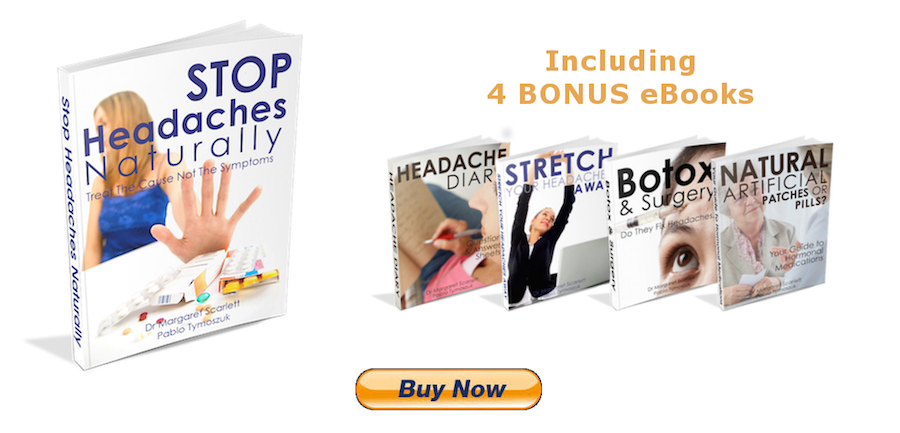The Promise - The Lure Of The Quick Fix
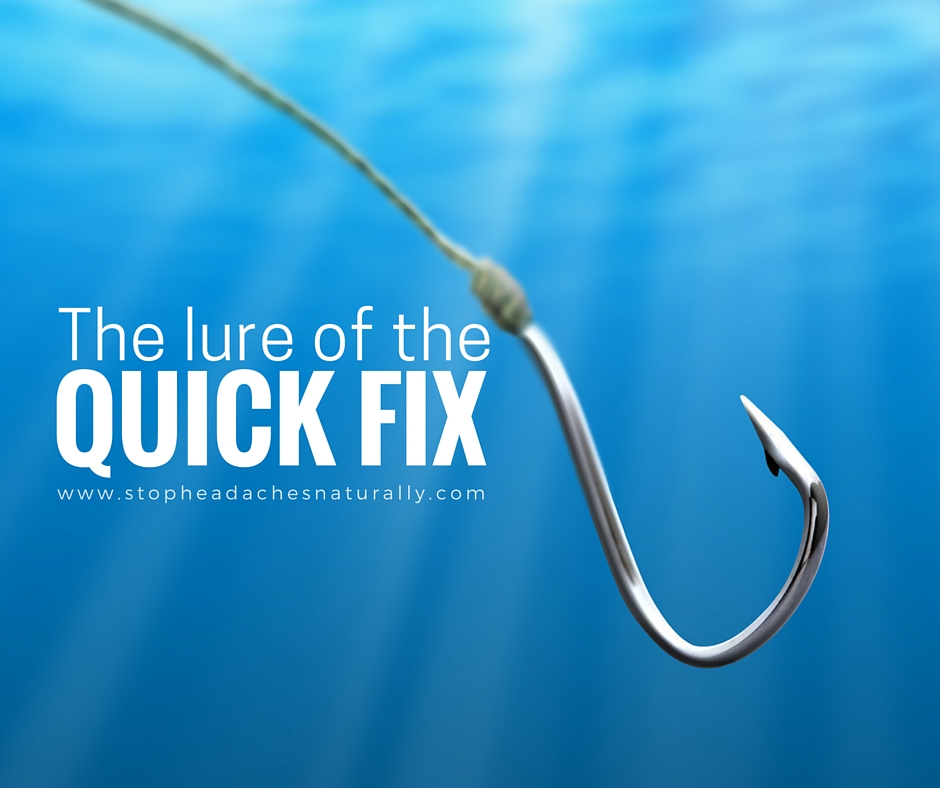
Our pre-occupation as a society with the short term quick fix is one of the factors responsible for over-reliance on pain-killers.
When time is money and a “can do” attitude is paramount, we may feel we can’t afford to be ill or to be functioning below our best.
Instead of taking time out to look after our health, when something goes wrong we look to medication to fix the problem.
"We look to medication to fix the problem"
The following quote typifies the “pop a pill and forget it” attitude that is so prevalent:
"It's never a great start to the day when you wake up with a pounding headache. Fortunately, help is often as close as your medicine cabinet. You can pop a couple of aspirin, close your eyes, and, in all likelihood, that throbbing in your head will be soothed within the hour.
You’re in good company in your choice of remedy. Some 80 billion aspirin tablets are taken worldwide, every year, for all types of headaches including the excruciatingly painful form known as a migraine. That's a lot of pharmacological muscle."
If you think this was written by an advertising executive for a pharmaceutical company you would be incorrect.
Disturbingly, it was actually taken from a reputable internet site offering health advice to the general public.
However there is no doubt that pharmaceutical advertising helps foster the idea that medication can provide solutions to all of your health problems.
This is an excerpt from Stop Headaches Naturally Chapter 6.6 - The promise - the lure of the quick fix
Be Your Own Doctor
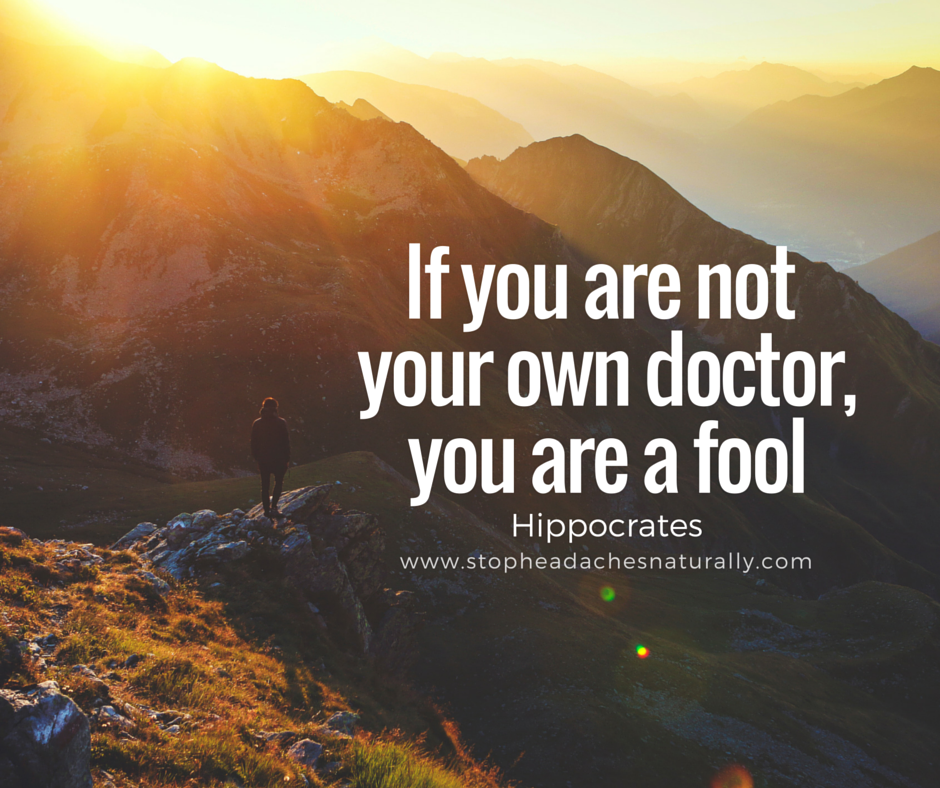
Even though there is so much information that can be found on the internet or health related Apps for your smart phone, one should NEVER self-diagnose or self medicate… leave that role for a well educated and qualified doctor.
But I do believe that the best medicine is prevention. For that to occur you need to take more of an active role in prescribing some of the most beneficial and effective medicine for yourself and become your own ‘doctor.’
"The best medicine is prevention"
Here is some ‘medicine’ that you can begin to take:
- Healthy & Varied Diet
- Exercise - cardio, strength & stretch
- Sleep
- Diaphragmatic breathing
- Laughter
- Keep hydrated
- Sunshine
- Positive attitude
- Pilates
- Manual Therapy
Let Food Be Thy Medicine
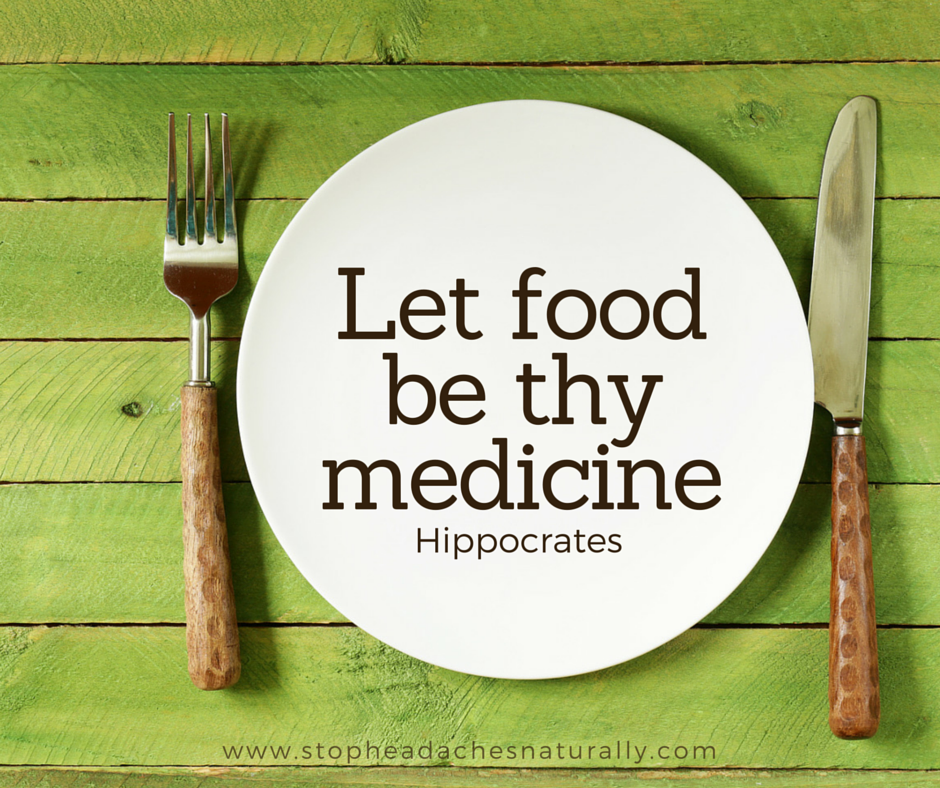
Hippocrates was a Greek physician who made such an impression on medical history that today he is called the father of modern medicine - some graduating medical students take the “Hippocratic Oath’ upon receiving their doctoral degree.
Even though Hippocrates did most of his work around 400 years before the birth of Christ, we can still learn a lot from his detailed observations of disease and its effects, and how health is often influenced by diet.
It’s a shame that many doctors prescribe medication without considering the benefits of a healthy diet.
The Focus Of Western Medicine Is On Treatment Rather Than Prevention
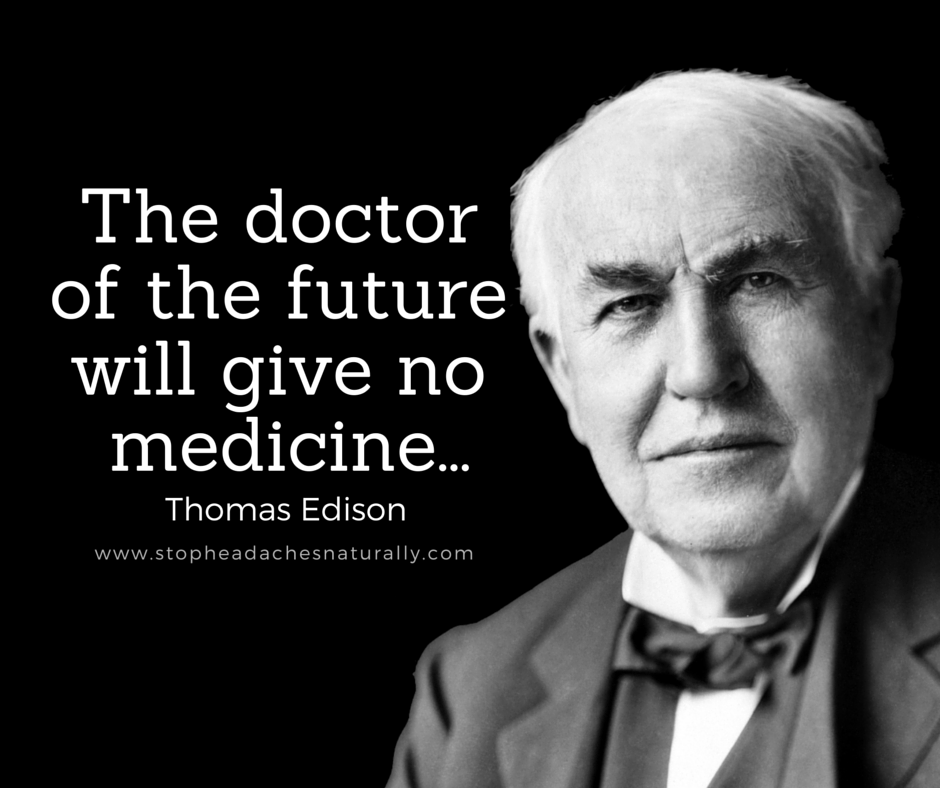
“The doctor of the future will give no medicine, but will interest his patients in the care of the human body, in diet, and in the cause and prevention of disease.”
Thomas Edison
Although there have been many medical advances since Edison’s time, the doctor is unfortunately still “giving medicine”.
The traditional approach in Western medicine has always been to diagnose a particular disease or condition from known symptoms and then to treat it with medication, surgery or various procedures.
This focus on diagnosis and treatment worked well for infectious diseases, but is not very useful for multi-factorial chronic diseases like cancer and cardiovascular disease.
At the population level, the emphasis has shifted in favour of understanding the underlying causes of disease, and prevention through improvements to lifestyle.
However this has not really been translated to the individual patient-doctor consultation.
It is not just the doctor’s fault – patient expectations also contribute to this situation. Patients sometimes complain they have not got value for money if they don’t leave clutching a prescription, but just discuss factors like diet, exercise and sleep with their doctor.
Or if the doctor does recommend various lifestyle changes, patients frequently ignore this advice and keep looking for “the magic bullet”.
And when the patient is in pain, many doctors feel helpless if they can’t provide some form of pain relief.
This is an excerpt from Stop Headaches Naturally Chapter 6.8 - The focus of Western medicine is on treatment rather than prevention
Preventative Medicine - Drink Water... But How Much?
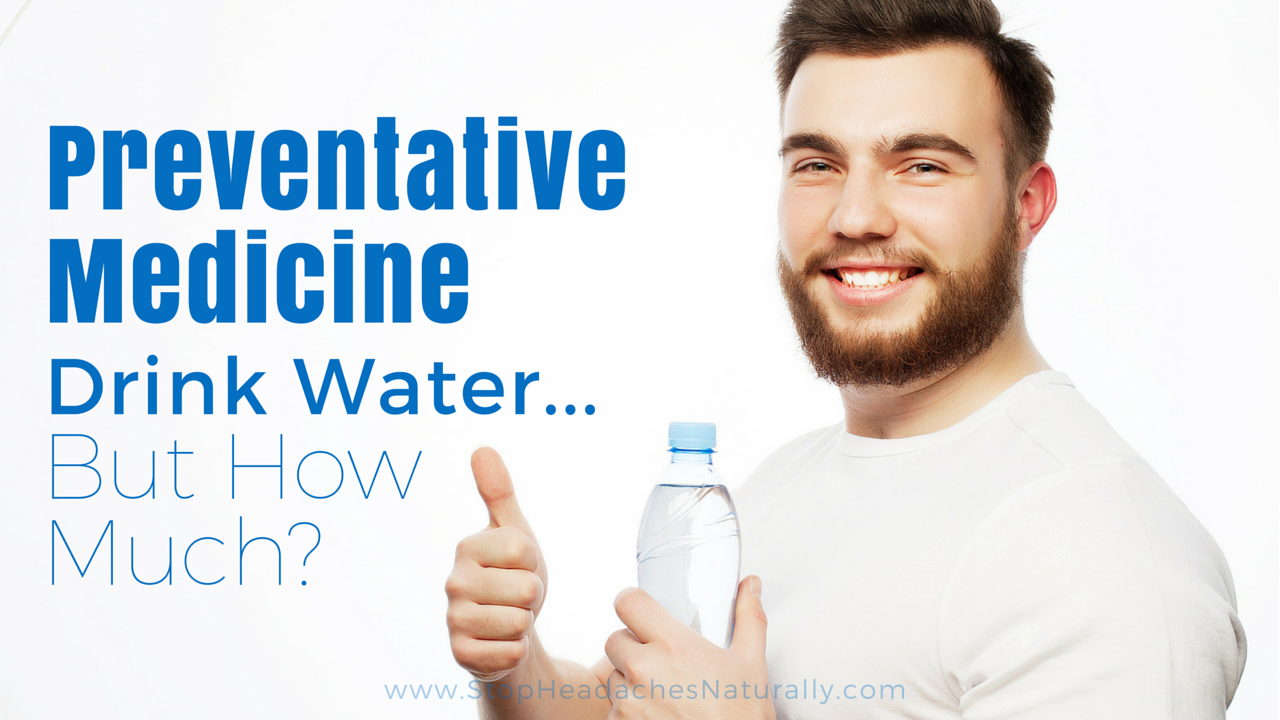
Studies on hydration status normally focus on water balance over a 24 hour period. For water balance to be maintained, water intake must equal water losses. So how much water or other fluids will be required for this?
It is difficult to make universal recommendations. People vary widely in their water needs depending on many different factors. These include age, gender, body size and composition, health, level of physical activity, and the temperature and humidity their environment. Even working in a dry air conditioned office can lead to increased water losses that we are not aware of.
"Conflicting points of view on how much fluid (including water) you should drink per day to stay well hydrated"
There are two conflicting points of view on how much fluid (including water) you should drink per day to stay well hydrated and government health agencies and other health authorities have changed their advice over the years.
One view is “to let thirst be your guide”. This is based on defining mild dehydration as starting at 3% loss of body weight. [1] It may work for who those sweat a lot, like athletes or those doing physical activity in hot climates. But it doesn’t seem to work so well for the average person going about their everyday activities, where water loss is smaller and more gradual.
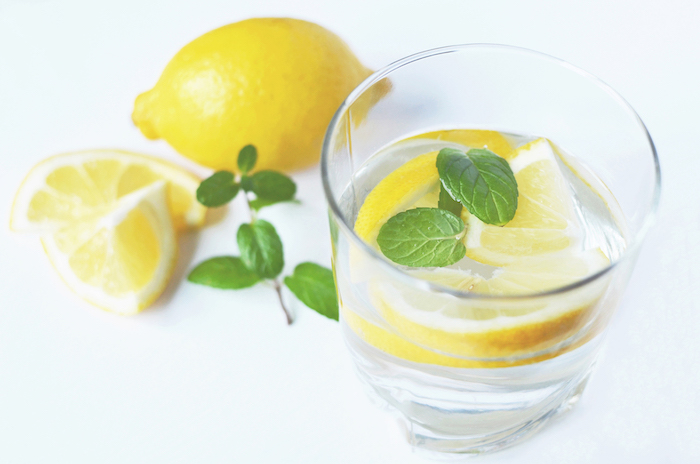
Part of the problem is that humans do not sense thirst until they have lost 1% to 2% of their body mass as water. [2] By that stage, you are already mildly dehydrated. Water has been transferred from within and between the cells of your body and into your blood-stream. In addition, some people get used to ignoring thirst signals. In others, such as the elderly, the thirst mechanism is less effective.
However the brain is 80% water. Recent research has shown that a loss of just 1.6% of body mass impaired cognitive performance and mood in healthy young men. [3] It seems reasonable to assume that a similar minor water loss can trigger a headache attack.
The alternative view on maintaining hydration status is to offer specific guidelines for an “average” non-exercising person in a temperate climate.
It is commonly assumed that about 20% of our water intake comes from food. [4] That leaves about 1700 ml to be made up by water and other beverages. It fits reasonably well with what in the US is referred to as the 8 x 8 rule – in other words drink a total of eight 8 oz glasses per day, which comes to a bit less than 2 litres.
"About 20% of our water intake comes from food. That leaves about 1.7 litres to be made up by water and other beverages"
However what is generally not emphasised by the need to spread fluid intake out evenly throughout the day. It takes time for water to be absorbed from the gut, enter the blood-stream and rehydrate the cells.
Drink too much too quickly and a lot of it will pass straight through. It can also be dangerous under some circumstances, especially when a lot of salts have been lost in sweat and these are not replaced at the same time.
What about drinks containing caffeine, like coffee, tea and some soft drinks, which have a mild diuretic effect?
Water balance studies show that these don’t cause dehydration over a 24 hour period, at least for those used to caffeine. However it is possible that increased urination could lead to temporary water losses from within brain cells and trigger a headache attack. If these losses are later made good they won’t be detected.
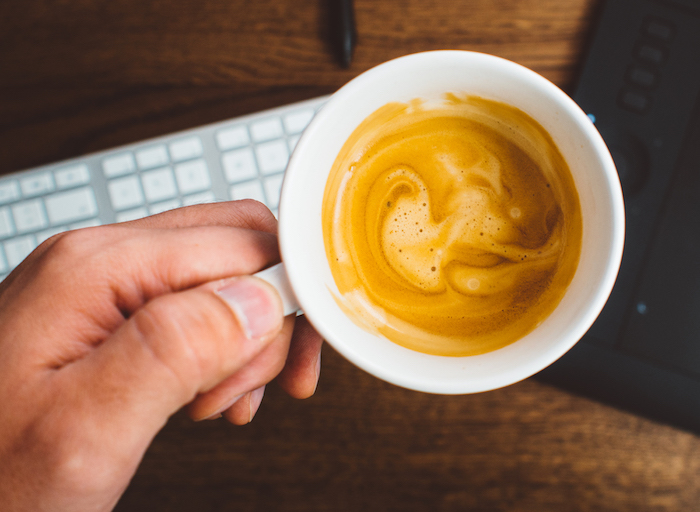
In any case headache sufferers need to be cautious about their caffeine intake to avoid headaches triggered by caffeine withdrawal.
Water is certainly a much better choice than sugary commercial fruit juices or soft drinks which can cause your blood glucose levels to spike. These drinks,[5] and even diet soft drinks, [6] have also been linked to progressively putting on body fat over time.
"We suggest you aim to drink roughly 1.5 litres of water evenly spread out over the whole day, and 20% derived from your diet, it will provide a total fluid intake of about 2 litres"
In the absence of any better evidence, we suggest you aim to drink roughly 1.5 litres of water evenly spread out over the whole day, giving a total fluid intake of about 2 litres.
Even if you don’t like water, this is an achievable target, provided you gradually replace some of your other beverages by water.
You could also try filtering tap water (this is a lot cheaper than bottled water) and adding a slice of lemon.
[1] H Valtin (2002). “Drink at least eight glasses of water a day.” Really? Is there scientific evidence for “8 x 8”?” Am J Physiol Regul Integr Comp Physiol, 283(5): R993 –R1004.
[2] LE Armstrong (2012). “Hydration Biomarkers During Daily Life: Recent Advances and Future Potential.” Nutrition Today, 47(4): Supplement 1: S3 - S6.
[3] MS Ganio, LE Armstrong, DJ Casa, BP McDermott, EC Lee, LM Yamamoto, S Marzano, RM Lopez, L Jimenez, L Le Bellego, E Chevillotte and HR Lieberman (2011). “Mild dehydration impairs cognitive performance and mood of men”. Br J Nutr, 106(10): 1535-1543.
[4] E Perrier, S Vergne, A Klein, M Poupin, P Rondeau, L Le Bellego, LE Armstrong, F Lang, J Stookey and I Tack (2013). “Hydration biomarkers in free-living adults with different levels of habitual fluid consumption”. Br J Nutr; 109(9): 1678–1687.
[5] VS Malik, A Pan, WC Willett and FB Hu (2013). “Sugar-sweetened beverages and weight gain in children and adults: a systematic review and meta-analysis”. Am J Clin Nutr; 98(4): 1084-1092.
[6] ML Power and J Schulkin (2013). The Evolution of Obesity, p117-118, JHU Press.
What Is Prentative Medicine?
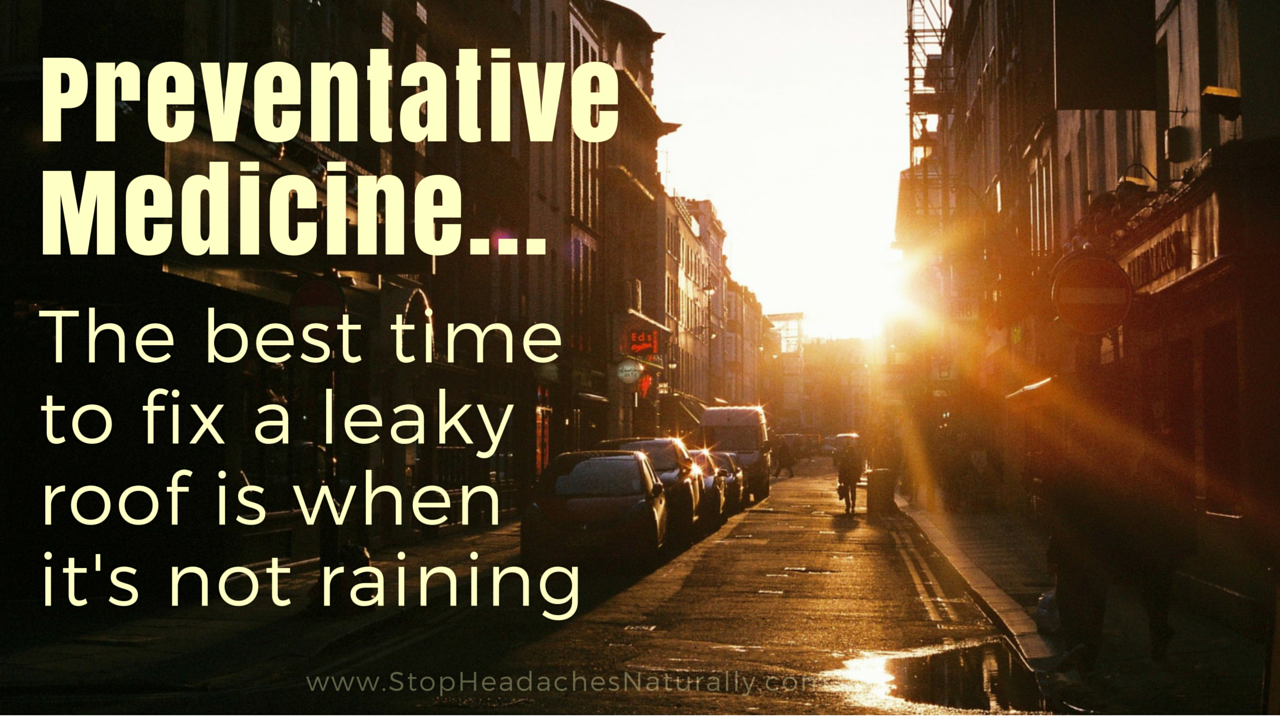
Have you ever tried fixing a leaky roof when it’s raining? The only thing you can do is place a bucket under the leak and temporarily repair the leak.
Once the rain stops, it’s easy to remove the water from the bucket and hope it doesn’t rain again. But if this cycle continues, the leak that was once only a single drop in a bucket, can worsen to the point were the roof can buckle and cave in.
Many of us can apply this behaviour to our health. It’s important that once we experience a ‘leak’ in our health - whether its back pain, tension headache or migraine - make the time to fix it.
"Once we experience a ‘leak’ in our health - whether its back pain, tension headache or migraine - make the time to fix it"
So don’t wait until it rains again. If the sun is shining and there are blue skies, make sure you make the time to take preventative measures to ensure that your roof contains no cracks or faulty plumbing.
Stay posted! I will be providing some Preventative Medicine strategies in upcoming posts…





